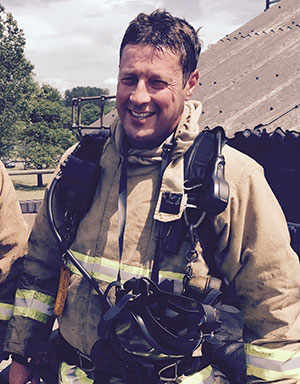Obstruction Regulations in Need of Reform
One of the fundamental principles of the FSO is that of self-regulation. When the Order came into force in October 2006, fire safety compliance was placed in the hands of those responsible for, or with control of relevant premises. The principle is sound; if individuals or organisations wish to use premises for a commercial purpose, then they should be responsible for making them safe.
However, as I have alluded to on numerous occasions in the past, difficulties arise for the enforcing authority when the control of premises is shared or where individuals or organisations deliberately or inadvertently set up complicated arrangements in relation to the running of the premises. Articles 3 and 5 of the FSO attempt to deal with these situations.
Article 27 of the FSO details numerous powers of (fire) inspectors, including the power to establish who is the responsible person (27(1)(b)(ii)), and failure to comply with with that Article becomes an offence under Article 32(2)(c).
But where individuals deliberately obstruct fire officers during the course of their duties, the assistance provided by the FSO needs bolstering. For some reason, which is not immediately clear to me, the Order treats the offences of obstruction as less serious than other offences under the Order.
This is at odds with the majority of the rest of the criminal law. For example, a driver who was convicted of driving whilst under the influence of alcohol will face a minimum of ban of 12 months (subject to exceptional provisions). But a driver who refuses to provide a breath or blood specimen for analysis will receive a minimum ban of 18 months. In this situation the law penalises those who obstruct police officers in the course of their duty more harshly than those who commit the actual offence itself.
The sentencing principle behind this thinking is that of deterrent. The law wants to make it clear that drivers who do not allow police officers to properly investigate potential offences will face heavier penalties than those who do.
The FSO does not follow this line of thinking. In fact the Order treats those who obstruct fire officers who might be investigating potential breaches or offences more leniently than those who are compliant. This is because all of the substantive offences under the Order are ‘either way’ offences, which means that they may be dealt with either at the Magistrates Court or at the Crown Court (where fines can be unlimited and imprisonment of up to 2 years can be sentenced.) Unfortunately, the offences under the Order relating to obstructing fire officers are ‘summary only’ offences (see Article 32(6)) and so can only be dealt with in the Magistrates Court by financial penalty (albeit now they can face an unlimited fine).
There is also a further significant distinction. All offences involving obstruction must be lodged with the court within 6 months of the date of the offence, whereas the substantive offences have no time limit, and could therefore be brought one or two years after the offence has allegedly been committed.
There are numerous non-fire related ‘summary only’ offences which are bound by the same constraints. But these offences are usually prosecuted by recognised prosecuting authorities, such as the CPS, the HSE or the DWP, all of whom have teams of investigators or the police whose job it is to ensure compliance with the strict rules of the court. The fire services have no such privilege. Fire safety teams rarely have the manpower to carry out appropriate investigations, interview suspects, prepare case files, take the appropriate legal advice and then lodge with the court within a six month period.
This is allowing potential suspects to lead fire investigators on the proverbial ‘goose chase’. I have dealt with cases where suspects have given false names during PACE interviews; defendants who have refused fire officers entry into premises to check on compliance with enforcement notices and one occasion where a defendant has refused to allow fire crews into his building to put out a fire.
This latter scenario is covered by the Emergency Workers (Obstruction) Act 2006, which came into force in 2007. However, the offence under this legislation has the same limitations, it can only be dealt with under the Magistrates Court’s procedures and so attract a lesser penalty than if the matter went to the Crown Court.
In my view this aspect of the Order is in need of reform. Identifying those responsible and those with control over premises is difficult enough as it is for fire officers – without the added burden of being misled or obstructed in their investigations. Put simply, guilty parties may prefer to pay a fine of a few hundred pounds for obstructing a fire officer than to comply with the Order.
This is sending out the wrong message and it is inconsistent with similar current criminal legislation.


